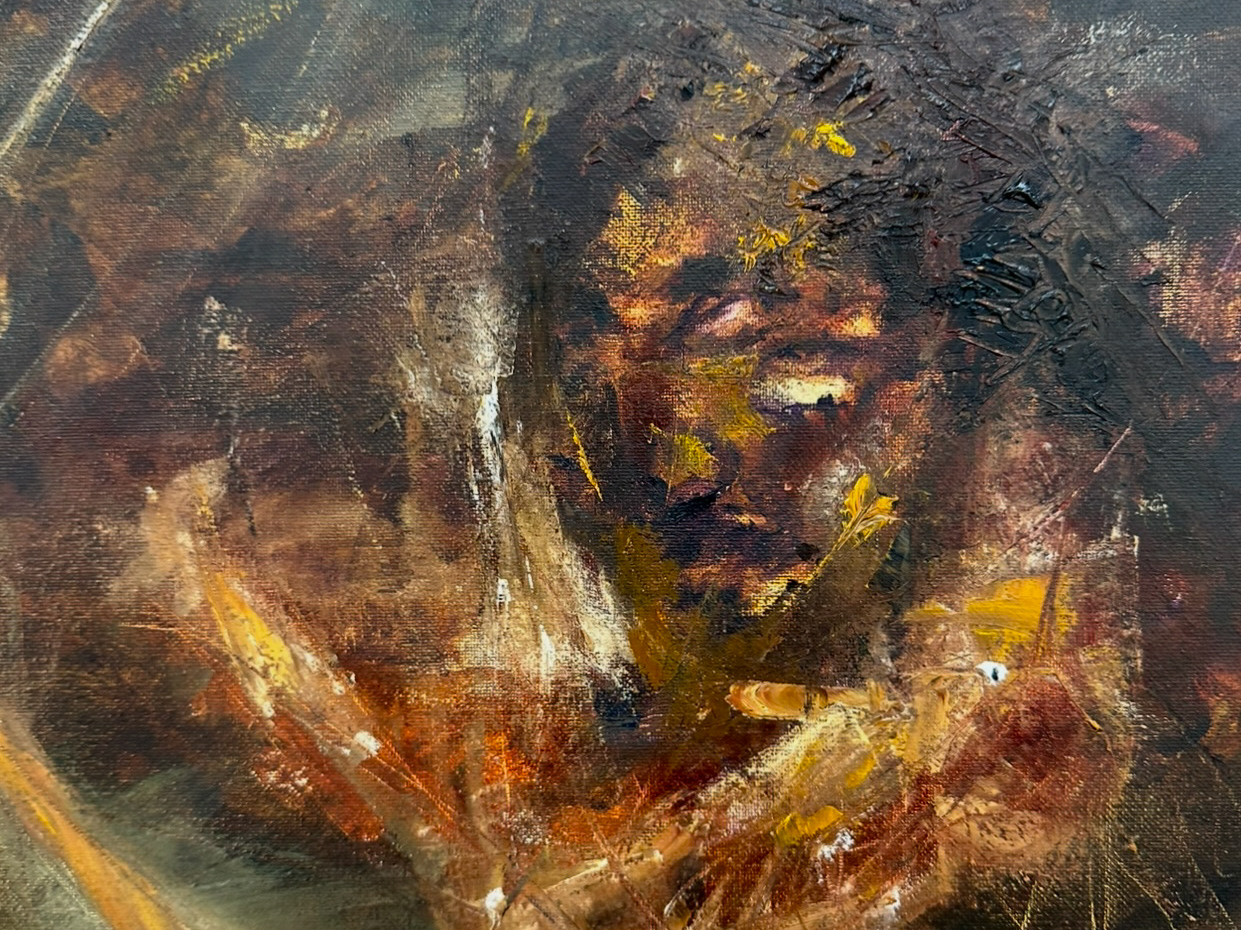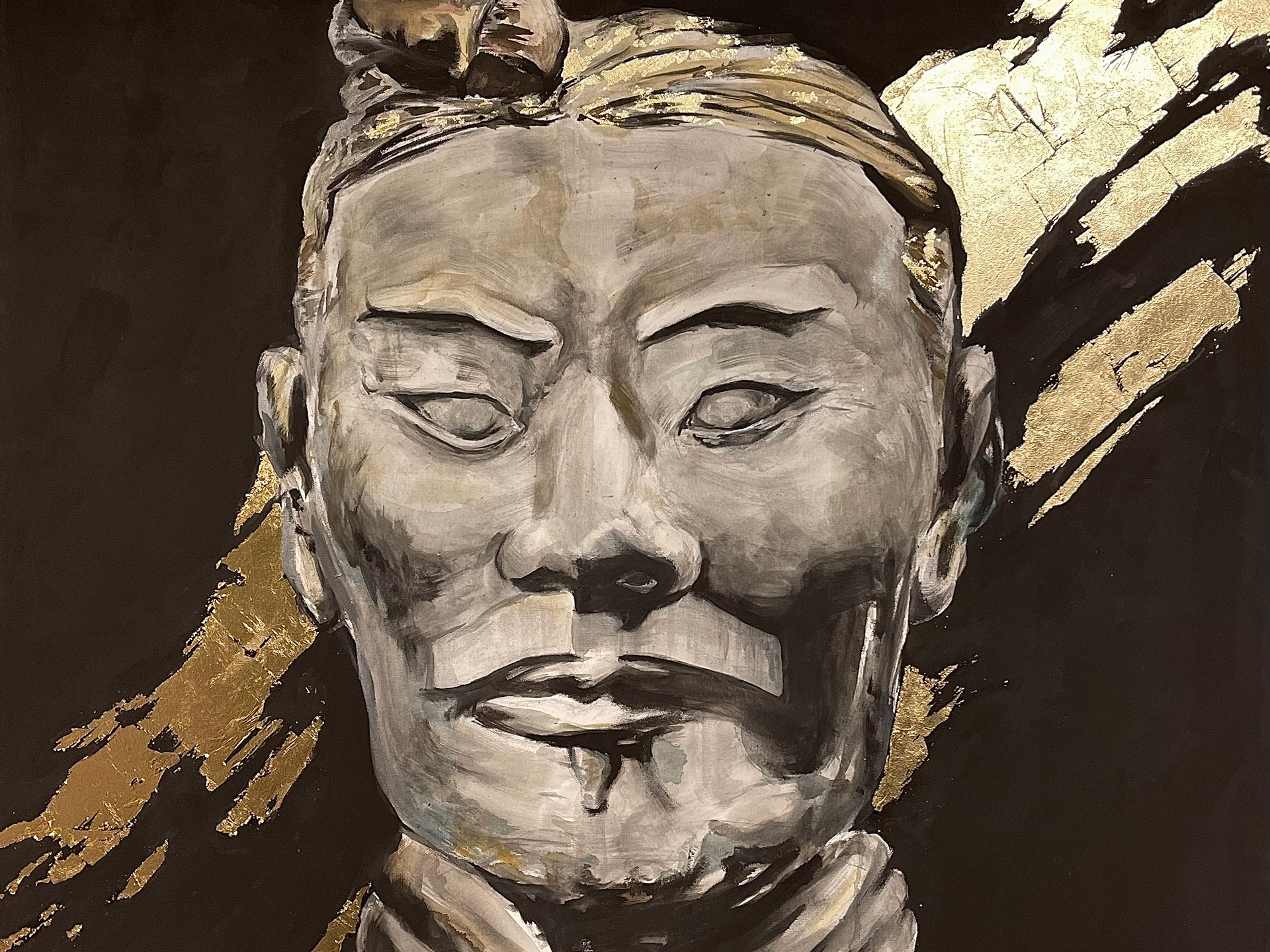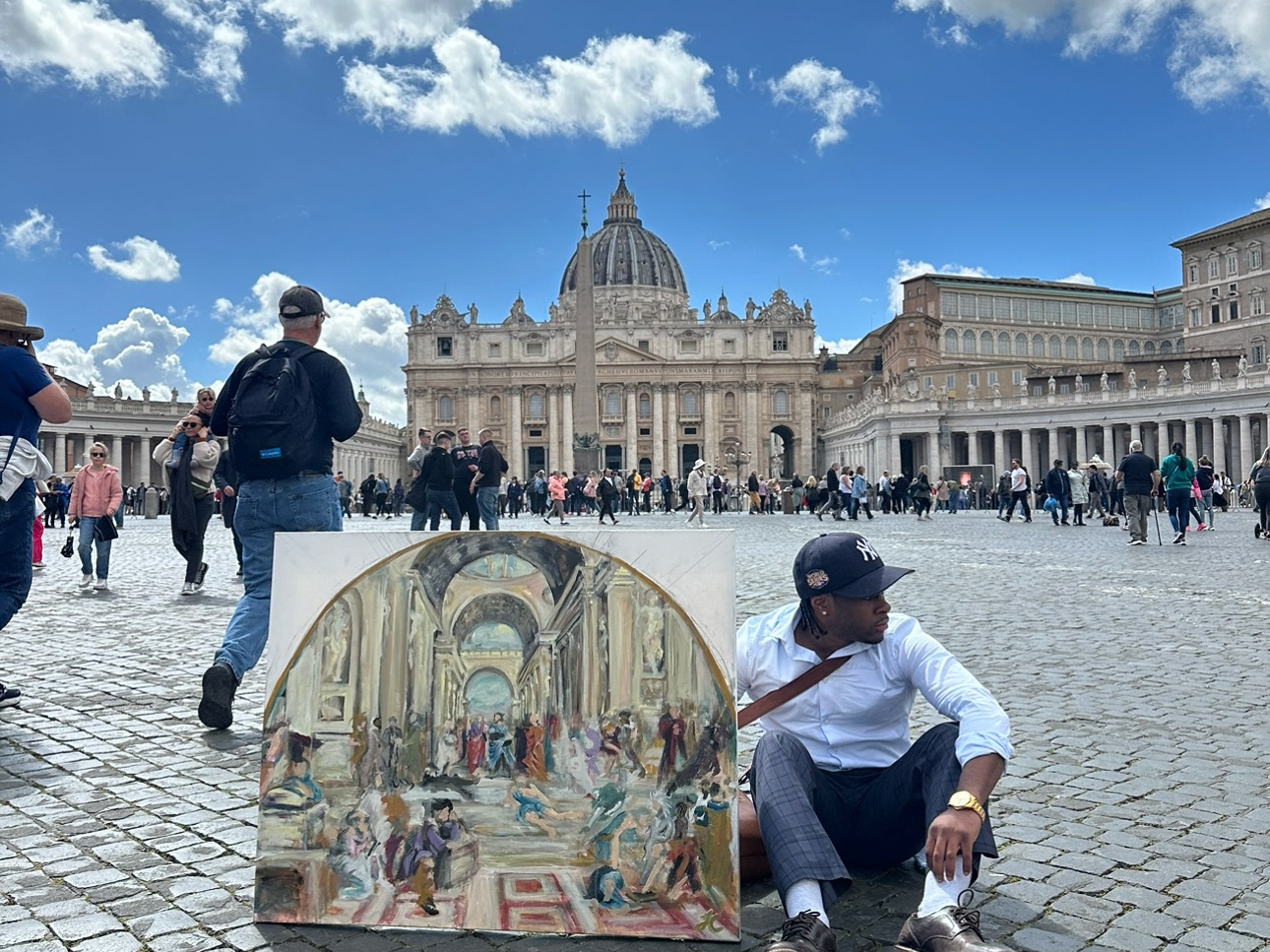Pauls Dismissal
Acts 13
Oil on Canvas, 3 x 4 feet
Cullins portrays the tense moment when Paul, visibly frustrated, dismisses young John Mark for abandoning the first missionary journey. Paul's stern expression and dismissive gesture reflect his disappointment at facing the challenges ahead with one less companion.
In contrast, John Mark (on the left) raises a finger, pleading his case to regain respect. Barnabas, his older cousin, mediates between them, encouraging John Mark to press on while empathizing with his hesitations. Barnabas understands both the dangers ahead and the intensity of Paul's unwavering zeal for God's mission.
With concern etched on his face, Paul strides uphill toward his upcoming journey into the unknown. He contemplates the challenges he might face: the people who know him for his past deeds, the courage it has taken to speak out against his former occupation of persecuting Christians, and the uncertainty of how his newly converted message will be received. He is acutely aware of the dangers, including the risk of death, should he offend the Jewish leaders or those in power. His dismissal of John Mark highlights his intense zeal for accomplishing his mission, his unwavering determination to get the job done, and his lack of patience for distractions.
Beside him walks Barnabas, an older gentleman with a humble demeanor. Once a contender for a position among the original 12 Apostles, Barnabas now willingly steps aside to support Paul—formerly Saul, the persecutor—on his first missionary journey. His humility shines through in his readiness to serve wherever he is needed, demonstrating his willingness to be used by God in any capacity. How much of a difference it must have made for Paul to have such a companion! Barnabas’s face reflects the depth of his quiet resolve and faith.
Church at Antioch
Acts 13
Oil on canvas, 18x12 in
This painting portrays the diverse leaders of the early church at Antioch, united in their mission to spread the Gospel to the Gentiles during a time of severe persecution. Known as “followers of The Way,” their expressions reflect the weight of their task and their reliance on Christ to guide their efforts.
Highlighting the church’s diversity, the painting includes Lucius (from North Africa), Barnabas (Greek and Jewish), Simeon (of African descent), and Paul (Roman and Jewish). This accurate representation emphasizes inclusion, countering the perception of Christianity as a "white man's religion" by showcasing its multicultural origins and the Kingdom’s unifying mission.
Erroneous Virtue & Blind Righteousness
Oil on Canvas, 3 x 4 feet
Acts 8:1–3
This painting critiques the glorification of wrongdoing in today’s culture, where trends often obscure truth. It depicts a young Saul zealously persecuting Christians as a Pharisee, believing he is serving God—only to later realize his error. The scene underscores that not everything that feels or looks right aligns with God’s truth, which remains pure and unchanging.
Contrasting with other works in the series, this piece emphasizes true strength—not in physical power but in unwavering faith and reliance on the Kingdom, as shown in Paul’s later life and missionary journeys.
Martyr of Stephen
Acts 6-7
Oil on canvas, 18x12 in
This piece captures the chaotic and harrowing scene of St. Stephen, the first martyr for Christ, dying for his faith. The stark contrast between Stephen's sacrifice and the youthful Saul (later Paul) is central to the composition. Saul, hidden among the crowd in the background, gathers the cloaks of those who dropped them at their feet to stone Stephen. This subtle detail emphasizes his complicity in the act of wrongdoing.
By positioning Saul as nearly indistinguishable from the crowd, the artwork conveys how easy it is to overlook his presence—he could have been anyone, blending in with the masses. Yet, this anonymity contrasts sharply with Saul's eventual transformation into Paul, a fervent apostle for Christ.
The painting highlights the powerful message that anyone, no matter their circumstances, actions, or position, can undergo profound change and redemption. Even amidst chaos and wrongdoing, the potential for renewal and alignment with God's will remains.







